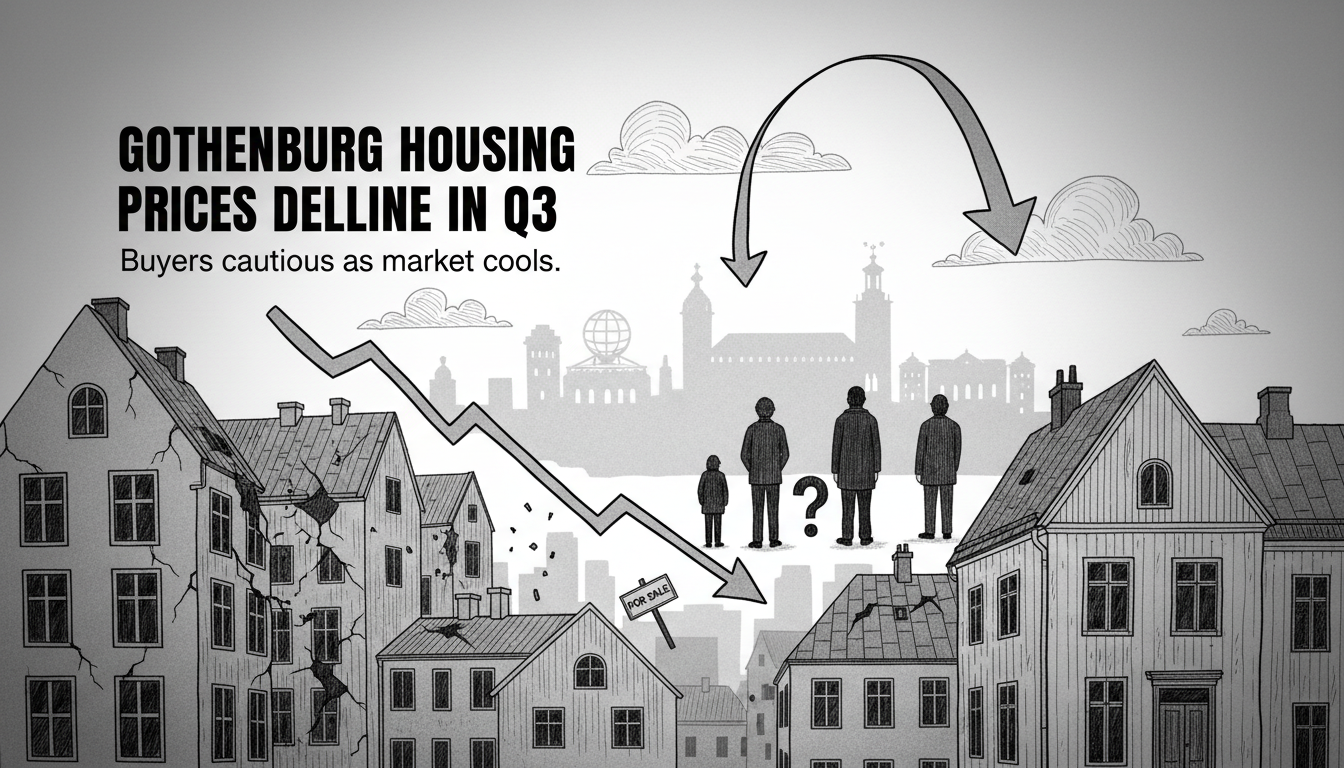Gothenburg's property market shows clear signs of cooling. Both houses and apartments recorded price drops during October. The city's real estate agents now watch for ripple effects from Stockholm's market.
Alexandra Jönsson, a real estate agent and office manager in Gothenburg, describes the current mood. She says the feeling matches the price picture, with little activity happening. The market appears stuck in a waiting pattern.
This downturn follows years of rapid price growth across Sweden's major cities. Gothenburg typically trails Stockholm in market movements but follows similar trends. The current slowdown reflects broader economic pressures affecting Swedish homeowners.
Sweden's housing market operates differently from many countries. Most urban residents own apartments through housing cooperatives called bostadsrätter. These function like condominiums but with different ownership structures. Understanding this system helps explain market dynamics.
Several factors contribute to Gothenburg's price adjustment. Rising interest rates make mortgages more expensive for Swedish homeowners. Inflation reduces household purchasing power. Economic uncertainty causes potential buyers to hesitate.
International readers should understand Sweden's unique mortgage system. Most homeowners have variable-rate loans, making them sensitive to interest rate changes. The central bank's recent rate hikes directly impact monthly payments for millions of Swedes.
The Stockholm effect refers to the capital's market influencing other cities. Stockholm often leads price movements, with Gothenburg and Malmö following. Agents watch whether Stockholm's more pronounced downturn will accelerate Gothenburg's decline.
This cooling period creates both challenges and opportunities. Current homeowners see property values decrease. First-time buyers might find more affordable entry points into the market. The shift could rebalance Sweden's overheated housing sector.
Market analysts note this correction follows predictable patterns. Sweden's property market experiences regular cycles of growth and correction. The current downturn appears consistent with historical adjustments, though its duration remains uncertain.
Gothenburg's economy relies heavily on automotive and shipping industries. These sectors face global headwinds that could prolong the housing market slowdown. The city's property prices often reflect its industrial health.
The waiting game continues for Gothenburg's real estate professionals. They monitor buyer sentiment and Stockholm's trajectory. The coming months will reveal whether this becomes a brief pause or sustained downturn in Sweden's second-largest housing market.

